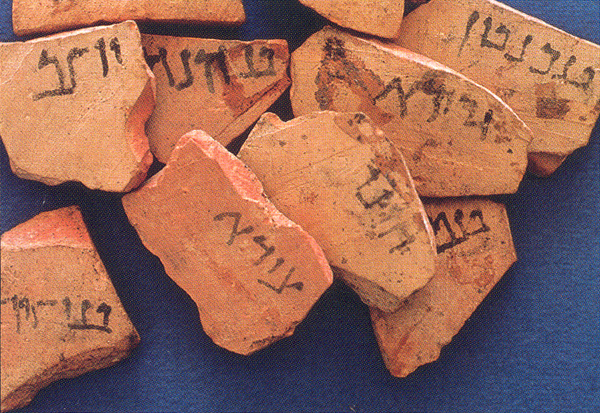Image Details

David Harris
A deadly lottery. Masada, King Herod’s palace-fortress on top of a mesa in the Judean Desert, was the setting of perhaps the most dramatic event in ancient Jewish history. During the First Jewish Revolt against Roman rule (66–70 A.D.), more than 900 Jewish rebels occupied the hilltop site. According to the historian Josephus, in 73 A.D., rather than suffer defeat at the hands of the Romans, they chose to commit mass suicide. Dozens of ostraca found at Masada—some inscribed with a single Hebrew name, and others bearing one Hebrew or Greek character—may include the lots they cast to determine which ten men would carry out the first killings, before being killed themselves. Or, perhaps more likely, the ostraca were simply coupons used for rationing food and supplies during the Roman siege.
